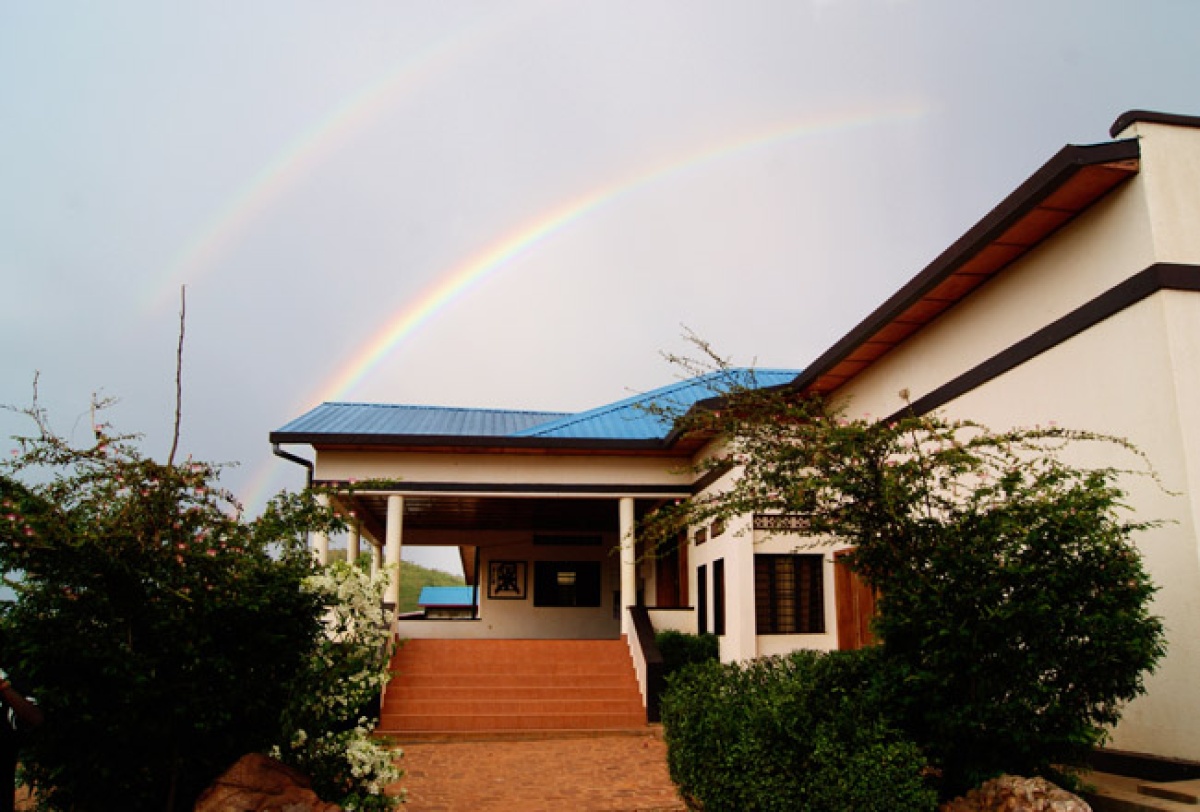A Nurse Accompanier in Rwanda
Posted on May 15, 2014

I was not looking for a new job when the email arrived. I was happy at my present one. But I thought there may still be the possibility of more adventure, more exposure, and more ways to apply my nursing skills. Then an email from the Dana-Farber Cancer Institute’s Nursing and Patient Care Services (DFCI NPCS) arrived, which presented a new opportunity: working as a global oncology nurse fellow in Rwanda.
I was hooked. I was at the right time and place in my career, and leaped at the opportunity to give back to nursing by transferring my expertise to nurses in Rwanda. I applied with nary a second thought, was accepted, and departed on March 25, 2012.
I spent the next three months between Rwinkwavu and Butaro Hospitals, working closely with the Ministry of Health and Partners In Health. In Rwinkwavu, I was devoted to training a core group of nurses who delivered cancer care. In Butaro, I was helping train nurses who went on to staff the oncology unit, the first of its kind in Rwanda.
Thankfully, my years as a nurse prepared me well. I was comfortable working in teams and skilled in assessment, planning, problem-solving and re-assessment—the nursing process, in a nutshell. After the national baseline training, I worked with my Rwandan counterparts and a PIH nurse educator, Diane Longson, to develop didactic, hands-on learning sessions.
It was inspiring to see the program come together. Standard operating procedures, or SOPs, were written. Mixing rooms for chemotherapy drugs were identified and stocked. All nurses completed chemotherapy competencies. Language barriers were surmounted by Rwandan nurses willing to translate. Nurses covered each other so that everyone could make it to class. Many stayed after their night shift to attend early morning training sessions.
The three months blew by, and soon I was back to my shifts in Boston at DFCI. But as luck would have it, I was able to return to Rwanda about one year after my first trip. It was gratifying to go on rounds and to hear nurses addressing the needs of their patients and be able to mix, prepare, and administer chemotherapy safely. Sure, there were gaps, but patients were being treated and well-managed by an engaged group of nurses. And DFCI NPCS had been instrumental in making that happen.
Anne Elperin, RN, CS, works in clinical and professional development at Dana-Farber Cancer Institute in Boston.

